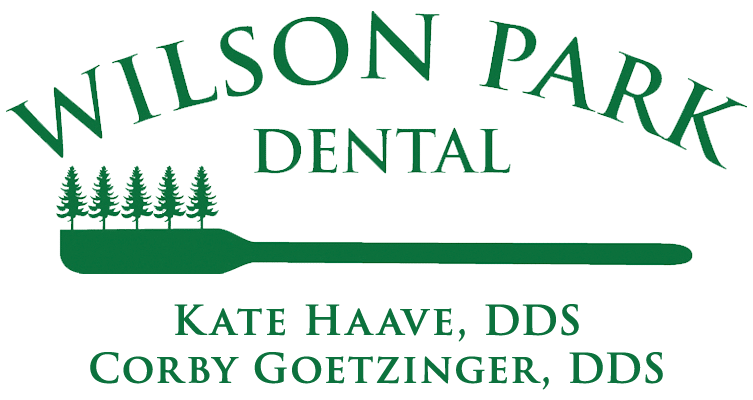Sleep is one of the most essential pillars of a healthy lifestyle, yet for many people, restful sleep can feel out of reach. A common, yet often overlooked condition that disrupts sleep is sleep apnea. At Wilson Park Dental, we frequently see patients dealing with this condition, and we're here to shed light on what it is, how it impacts your health, and what can be done to manage it effectively. Whether you're seeking relief for yourself or trying to help a loved one, this guide will provide clear, compassionate insights into sleep apnea.
Let's take a closer look at the causes, symptoms, and most effective treatment options for this condition.
What Causes Sleep Apnea?
Sleep apnea occurs when breathing repeatedly stops and starts during sleep. The primary causes can vary based on the type of sleep apnea:
- Obstructive Sleep Apnea (OSA) is the most common type and happens when the throat muscles relax excessively, partially or completely blocking the airway.
- Central Sleep Apnea (CSA) occurs when the brain doesn’t send proper signals to the muscles that control breathing. Unlike OSA, this is more of a neurological issue than a physical blockage.
- Complex Sleep Apnea Syndrome, also called treatment-emergent central sleep apnea, is a combination of both OSA and CSA.
Certain factors increase the likelihood of developing sleep apnea, such as being overweight, having a naturally narrow airway, chronic nasal congestion, or even genetic predispositions. It is important to recognize these triggers and risks, as addressing them can often lead to better sleep outcomes.
Recognizing the Symptoms of Sleep Apnea
The symptoms of sleep apnea can range from subtle to severe. Many people don’t even realize they have it until a bed partner notices irregular breathing patterns or excessive snoring. Here are some of the most common symptoms to watch for:
- Loud snoring
- Interrupted breathing during sleep (common in OSA)
- Gasping for air or choking while sleeping
- Excessive daytime sleepiness
- Morning headaches
- Difficulty focusing or memory problems
- Irritability or mood swings
These symptoms can take a serious toll on your quality of life, impacting everything from work performance to personal relationships. Sleep apnea can also pose more severe health risks, leading to conditions like hypertension, heart disease, and even stroke if left untreated for too long.
Effective Treatment Options for Sleep Apnea
The good news? Sleep apnea is highly treatable. With advancements in technology and healthcare, a range of solutions are available for patients. Here are the most effective treatment options used today:
1. Continuous Positive Airway Pressure (CPAP) Therapy
A CPAP machine delivers a steady stream of air through a mask to keep your airway open during sleep. While highly effective, some patients find the equipment cumbersome. However, newer models have been designed for better comfort and user-friendliness.
2. Custom Oral Appliances
Here at Wilson Park Dental, we specialize in creating custom oral devices that reposition the jaw or tongue to keep the airway clear. This is often an excellent choice for patients with mild to moderate obstructive sleep apnea who are looking for a non-invasive solution. If you're interested in discreet but effective solutions, we encourage you to explore more about our treatments for sleep apnea.
3. Lifestyle Changes
Modifications such as losing weight, sleeping on your side, or reducing alcohol intake before bed can have a significant impact in reducing symptoms. These natural solutions are especially effective for mild cases.
4. Surgical Intervention
For structural issues like enlarged tonsils or a deviated septum contributing to sleep apnea, surgery may be recommended. While this is typically considered a last resort, it can be life-changing for those with severe cases.
Each patient's treatment plan should ideally be tailored to their specific condition and lifestyle needs. By consulting with professionals, you can ensure you're receiving the best care suited to your situation.
Getting the Rest You Deserve
Living with untreated sleep apnea can feel exhausting and overwhelming, but support and solutions are readily available. At Wilson Park Dental, we’re here to help you regain restful nights and energized days. Our experienced team is skilled in evaluating and treating sleep apnea with customized care and advanced options. Together, we’ll create a plan to ensure you wake up feeling refreshed, ready, and at your best.
Don’t wait to find relief. Take the first step to reclaim your sleep and overall health.
Frequently Asked Questions About Sleep Apnea
What happens if sleep apnea is left untreated?
Sleep apnea can lead to several serious health complications, including high blood pressure, heart disease, type 2 diabetes, and depression. Untreated sleep apnea can also increase the risk of automobile or workplace accidents due to excessive daytime sleepiness. That’s why it’s essential to seek professional care.
Can a dentist help with sleep apnea?
Yes, dentists can play a significant role in managing sleep apnea, especially mild to moderate cases of obstructive sleep apnea. Dental professionals, like the team at Wilson Park Dental, design custom oral appliances that help keep your airway open while you sleep, offering a convenient and non-invasive solution.
At Wilson Park Dental, we combine compassionate care with advanced treatments to help every patient find their best smile and overall health. Based in Rapid City, SD, we’re dedicated to creating a welcoming environment while offering a wide variety of dental services for patients of all ages. Schedule an appointment with our team today to learn more!


